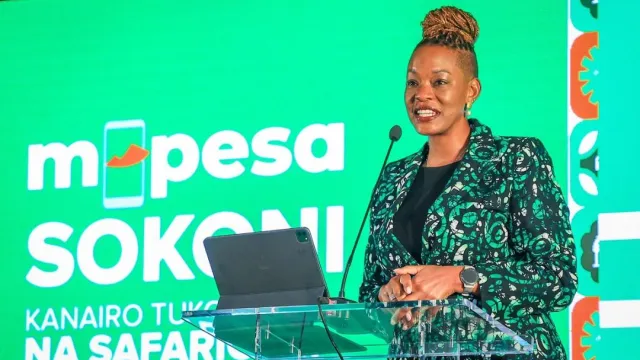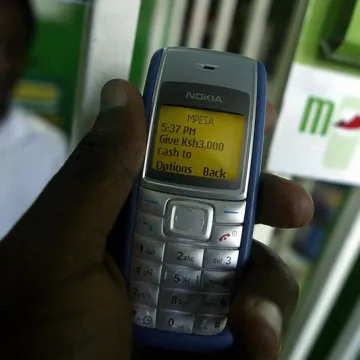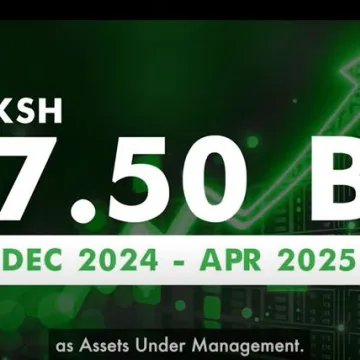The API Economy in Africa: Driving Inclusive Growth Through Open Finance

Esther Waititu, Chief Financial Services Officer, Safaricom PLC
Africa’s digital financial landscape is undergoing a profound transformation. What began with mobile money enabling millions to send and receive funds through simple phones has evolved into a dynamic, interconnected digital ecosystem.
Financial services are no longer standalone products; they are becoming seamlessly integrated into the platforms we use every day.
Today, a small trader can accept remote payments, access instant credit and reconcile accounts in real time through their mobile phones.
Consumers are also demanding more. Beyond basic transfers, they want tools to track spending, access credit on demand, invest, protect their earnings and manage finances from a single interface regardless of whether they are using a telco, bank, or fintech solution. Convenience, control and security are non-negotiable.
While Application Programming Interface (API) may still sound technical to many, APIs are the invisible infrastructure powering this transformation.
Interoperability and innovation
They connect a boda boda rider’s earnings to digital credit, a micro-merchant to global e-commerce and a parent to mobile school fee payments. APIs are the new currency of openness, interoperability and innovation.
Africa’s advantage lies in its young, entrepreneurial and increasingly digital population. Yet, over 350 million adults in Sub-Saharan Africa remain unbanked, according to the World Bank.
Still, over 80 percent have access to a mobile phone. The opportunity lies in building bridges not silos between banks, fintechs, telcos, government systems and informal networks. This is where open finance, powered by APIs, becomes transformative.
Open finance includes technology, trust, inclusion and ecosystem value. It enables customers and businesses to access services seamlessly across platforms linking a bank account to a mobile wallet, applying for credit from a digital lender, or embedding payments into e-commerce.
Done right, open finance levels the playing field, allowing even the smallest players to participate meaningfully in the digital economy.
Daraja API platform
The Safaricom, Daraja API platform demonstrates the power of this vision. It allows enterprises to embed M-PESA directly into their apps, websites and systems.
With over 100,000 developers and more than 60,000 active integrations, Daraja is unlocking real value.
A hardware store in Nyeri can now automate its collections and reconcile payments instantly. An e-learning platform can accept subscription payments from across the country. When barriers are lowered, innovation follows.
But the API economy goes beyond payments. It opens pathways for savings, credit, insurance and investment bringing financial services to where people already are. The next frontier is full ecosystem enablement, allowing services to follow customers across platforms, devices and moments in their lives.
To build truly inclusive financial systems, we must move from vertical control to horizontal collaboration. Telcos, banks, fintechs, regulators and even Big Tech must co-create open, secure and customer-focused rails.
This demands more than technical integration it calls for shared standards, clear governance, strong data privacy frameworks and above all, customer trust. The Central Bank of Kenya’s move toward open finance regulation is a welcome and progressive step in this direction.
API economy
The API economy is not a trend but infrastructure of the digital age. For Africa, it represents a chance to go beyond legacy systems and build a future that is inclusive by design. But realising its full promise will take more than innovation. It will require courage, trust and meaningful partnerships.
APIs may be invisible, but their impact is not. They are opening doors that were once shut, building ladders where there were walls and giving millions the tools to shape their own economic futures.
After 18 years of transforming the financial landscape, M-PESA has been at the center of Africa’s journey toward financial inclusion. From enabling the unbanked to participate in formal finance to catalyzing micro-enterprise growth, M-PESA has laid the foundational rails.
The next chapter is about financial wellness, helping customers not just access money, but grow it, protect it and make better financial decisions through intelligent, integrated and inclusive digital ecosystems. The opportunity for the entire industry is to move from inclusion to empowerment.
Digital credit solutions
As this evolution continues, the role of digital credit solutions that provide real-time liquidity to both consumers and businesses such as Fuliza and Taasi becomes increasingly critical. These offerings address urgent cash flow needs while maintaining transactional momentum.
On the other hand, M-PESA's Ziidi platform is enabling savings and investment journeys for everyday consumers and micro-entrepreneurs, many of whom operate through Pochi la Biashara. Together, these innovations signal a shift from transactional inclusion to holistic financial health making it possible for customers to borrow, save, invest, and transact within a single ecosystem.
The writer, Esther Waititu, is Chief Financial Services Officer, Safaricom PLC





